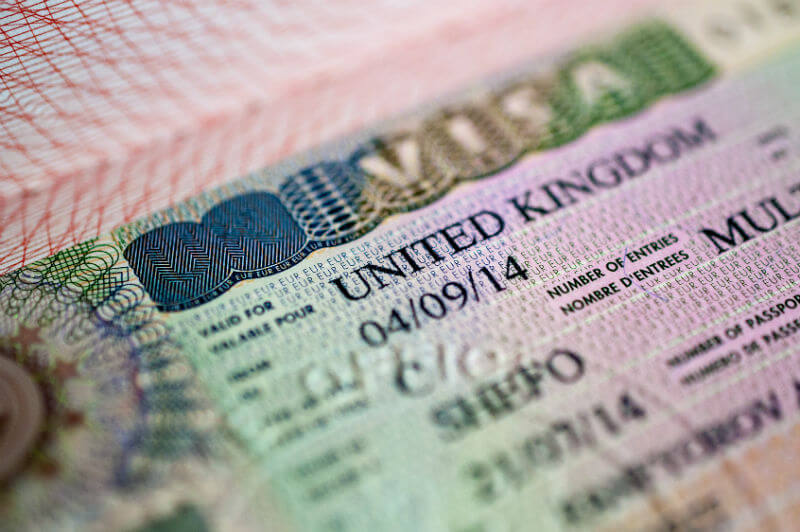So, you’ve found someone amazing who lives in the UK, and now the goal is to be together—for real. Not just through video calls or quick visits. The big question is: how do you actually move there and live with them legally? That’s where the British Marriage Visa comes in.
This isn’t something you can just wing. Moving to the UK to be with a partner takes more than love and plane tickets. It takes planning, patience, and paperwork. A lot of paperwork.
Let’s walk through what it really means to apply for this visa, what you need to have ready, and what life can look like once it’s all sorted.
What Is a British Marriage Visa?
The British Marriage Visa is for people who are married to or in a civil partnership with someone who’s a British citizen or has permanent residence in the UK. It’s officially called a “UK Spouse Visa,” and it lets you live, work, and study in the UK with your partner.
Now, this visa isn’t only for people who are already married. If you’re planning to get married in the UK or have a fiancé(e) visa, there’s a similar process. But the British Marriage Visa is for couples who are already married or in a recognized civil partnership and want to stay together in the UK long-term.
It Starts with Proof—Lots of It
The first thing immigration officials want to know is whether the relationship is real. This isn’t about reading love letters or scrolling through Instagram. They’re looking for clear, solid proof that the marriage isn’t just for the visa.
Things that help show a real relationship include:
- A marriage certificate that’s legally valid in the country where it was issued
- Documents showing you’ve lived together before (bills, rental agreements, etc.)
- Photos across time, not just one vacation
- Travel records or communication logs
It’s not about showing off a perfect love story. It’s about proving a shared life, day-to-day connection, and long-term plans.
The Financial Requirement (and Why It Matters)
One of the trickiest parts of this process is the financial requirement. Basically, your partner in the UK has to earn a certain amount of money—or have savings—to support you.
At the time of writing, the required annual income is £18,600. This amount goes up if children are involved. If your partner doesn’t meet this through their job, savings can sometimes be used instead, but the rules for that are specific and strict.
Why does this matter so much? The UK government wants to make sure people moving here won’t rely on public funds. That’s why proof of income is a must. Pay slips, bank statements, and job contracts usually need to be included in the application.
English Language Skills Are Part of the Deal
To get this visa, you also need to show that you can speak English at a basic level. This means passing a speaking and listening test unless you’re from a country where English is the main language or you have a degree taught in English.
It’s not a super hard test, but it’s still something that needs to be booked and passed before the visa can be approved.
Where to Apply From (and How Long It Takes)
Most people apply from outside the UK, but it’s also possible to apply from inside if you’re already there on a visa that allows you to switch.
Processing times can vary. Sometimes it takes a few months. Sometimes longer. It depends on how complete the application is, how busy the visa center is, and whether any extra info is needed.
Premium services are sometimes available to speed things up, but they cost more. Either way, waiting is just part of the process.
What Happens Once the Visa Is Approved?
Once the visa is granted, you can move to the UK and stay for 2 years and 9 months. After that, you can apply to extend it. If you’re still together and meet all the same rules, the extension usually gets approved.
After five years of living together in the UK, you can apply for permanent residency (called Indefinite Leave to Remain). And after that, it might even be possible to apply for British citizenship—if that’s something you want down the road.
The visa also lets you work, study, and live almost like any other resident. But you still have to follow immigration rules carefully, especially when it comes to renewing or updating the visa.
Real Life After the Move
Once the paperwork is done and you’re finally together in the UK, everything might seem perfect—but adjusting still takes time.
Moving countries can be exciting, but also a little overwhelming. It takes time to settle into a new place, find work, get used to a new culture, and maybe even deal with homesickness.
It helps a lot when couples talk about this part early on—before the move even happens. That way, both people know it might not feel smooth right away, and they can support each other through it.
A Few Things That Can Go Wrong (And How to Avoid Them)
Some people have their visa delayed or even denied. Usually, that happens because something is missing or not clear in the application. Common problems include:
- Missing documents
- Not meeting the financial rule
- Expired test results or paperwork
- Not enough evidence of a real relationship
The best way to avoid this is to double-check everything. If something feels confusing, it’s okay to ask for help. Lots of couples work with immigration lawyers or advisers who know exactly what needs to be included.
Don’t Let the Process Scare You Off
Getting a British Marriage Visa isn’t quick, but it is possible. Thousands of couples do it every year, and even though the process might feel stressful at times, having a clear plan makes all the difference.
Stay organized. Be honest. Don’t leave things out just because they seem small. And remember, this isn’t just about a visa—it’s about starting a new chapter with someone who means the world.
If the first step feels confusing, start with small things. Look into the basic requirements. See what documents are needed. Talk about your future plans as a couple. The more you talk things through together, the smoother the journey becomes.


